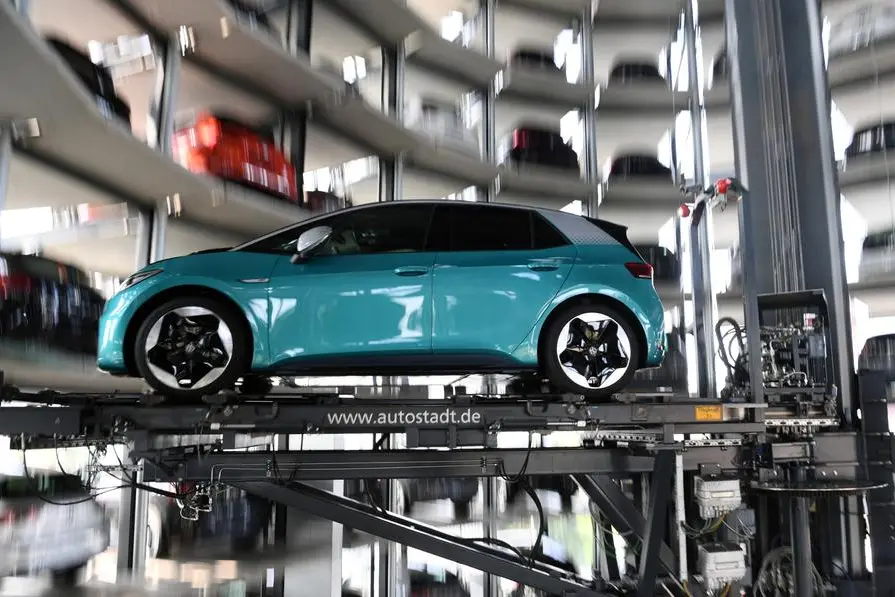PHOTO
Germany 's state-owned KfW bank on Wednesday said it had halted a day-old subsidy programme for charging electric vehicles with solar power at home as the funds were exhausted immediately due to high demand.
With a budget of 300 million euros ($317 million) from the transport ministry for this year, the programme offered a subsidy of up to 10,200 euros for homeowners with electric cars for installing a photovoltaic system with power storage and a charging station.
The programme was aimed at boosting the switch to electric cars and reducing the need for public charging stations.
Around 33,000 applications were submitted within 24 hours of its launch, meaning the earmarked funds had been exhausted, a spokesperson for KfW bank said. "We ask all interested parties not to submit any further applications."
The transport ministry had allocated a total of some 500 million euros for the programme with 200 million reserved for next year under a "first-come, first-served principle".
Germany's solar power association BSW said it was not surprised the funds were exhausted so quickly, due to booming demand for residential photovoltaic systems and wallboxes to charge electric vehicles.
Demand for solar power systems more than doubled in the first half of 2022, compared with the year before, and one in six homeowners in the country are planning to install solar panels on their roofs, BSW said, citing market data and a spring survey by YouGov.
As the cost of electric cars charging at home with home-generated solar power falls to less than third compared with purchasing from the grid, some 42% of people installing panels on their roofs would install a wallbox, it added.
A typical 70 square meter residential photovoltaic system could offer electricity for up to 20,000 kilometers of electric travel in addition to powering a four-person household.
The association said it did not expect a new edition of the e-car solar subsidy but said other financing programs, such as a KfW loan, were still available.
($1 = 0.9463 euros) (Reporting by Riham Alkousaa and Andreas Rinke; Editing by Friederike Heine and David Holmes)





















